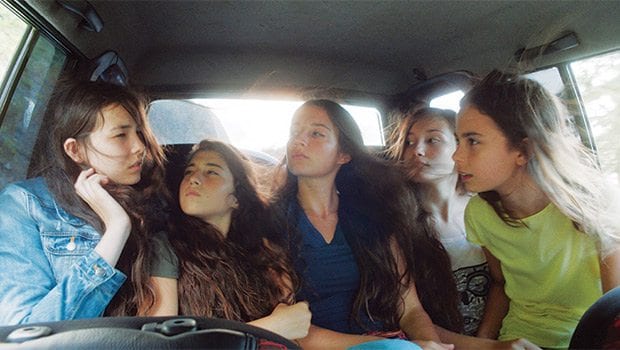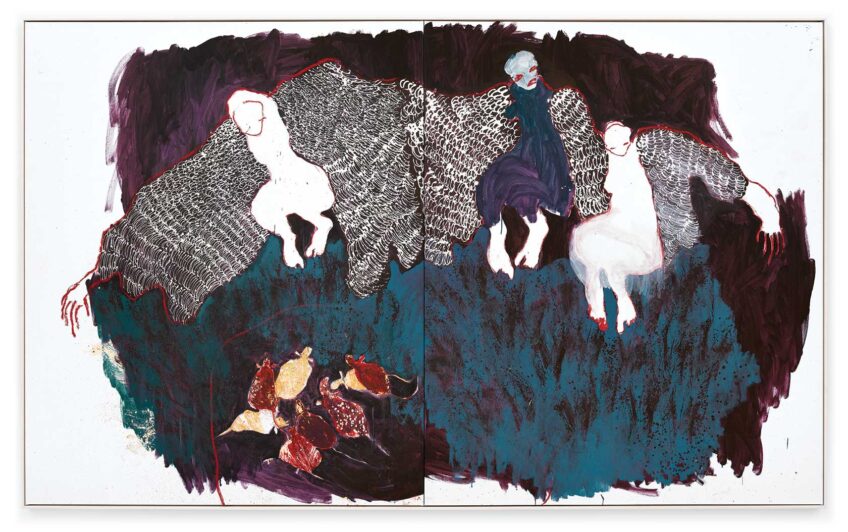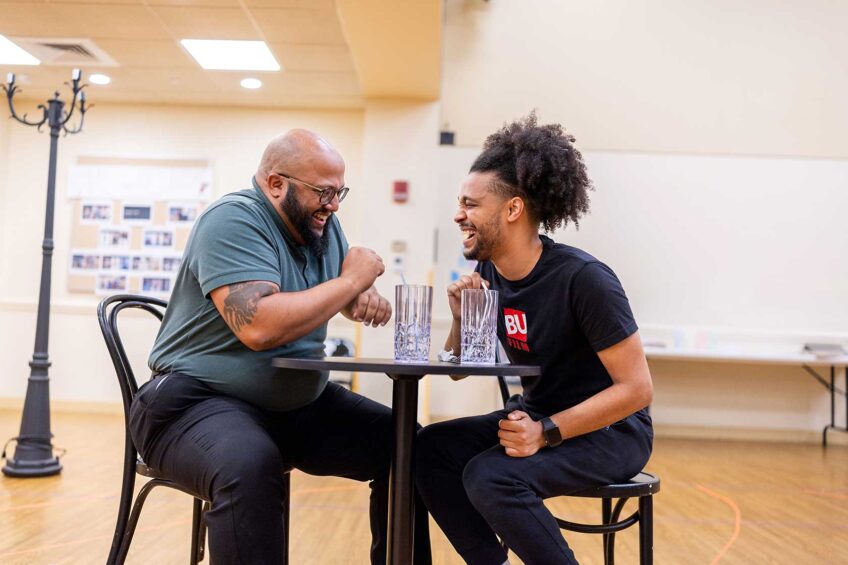Director Deniz Gamze Ergüven discusses her feature film debut ‘Mustang’

Winner of the Europa Cinemas Prize at the 2015 Cannes Film Festival and a 2015 Golden Globe nominee in the category of Best Foreign-Language Film (it lost to Hungary’s “Son of Saul” this past Monday), “Mustang” is a captivating and beautifully written and directed film that tells the story of five modern-day teenage sisters living with their grandmother in the remote village of Inebolu in northern Turkey, who are imprisoned by their family for what they believe is sexually-illicit behavior on the part of the girls.
Even as their home is transformed literally into a prison with bars on the windows, their cell phones and computers removed, their modern attire replaced with traditional clothing, and school abandoned in favor of lessons on how to be a wife — Ece, Selma, Sonay, Nur and Lale — are determined to master their own fate.
The screenplay, which was written and directed by Deniz Gamze Ergüven and co-written by Alice Winocour, uses a real-life incident from Ergüven’s past as a plot point for the movie. Although, the Turkish-born director had a very cosmopolitan upbringing shuttling between France, Turkey and the United States, she also was somewhat affected by the culture in what was deemed proper behavior for girls.
Speaking to the Banner by phone, the director describes the opening scene of the film where the girls triggered a scandal because they’re splashing around at the beach, playing games and sitting on the shoulders of a few of their male classmates.
“That happened to us in our family in the exact same way, but we were just mortified and never said anything,” says Ergüven. Unlike the director, the free-spirited heroines in “Mustang” speak up when confronted by their grandmother.
“The way that the characters act in the film is completely fiction. The girls act like superheroes in a way that no one I know ever acted,” describes the director.
Becoming human
With “Mustang,” Ergüven very much wanted to address the issue of how women and girls are being sexualized in her native homeland. Despite Turkey being one of the first countries to give women the right to vote in the 1930s, it has swung backwards of late in its treatment of its female population.
“It’s something which is regrettable. The one thing which is very striking for the women in Turkey, every inch of their skin, every action that they can do is sexualized. So, there’s this filter of sexualization to which they’re seen and it can be very disturbing. Sometimes the attitude of the actual government is so aggressive towards women, and there is something which is making the guilt of being the women so much stronger, that it normalizes behaviors which were previously not so normal,” says Ergüven.
The idea for the movie had been floating around in her head since 2010. “It was more my curiosity was turning towards the story, not so consciously,” she says. Influenced by the books that she was reading and the questions that she was asking, Ergüven “was starting to turn into that direction.”
And so, in 2011, she wrote the first treatment which was extremely close to realizing real-life characters but she didn’t have the courage to go through with it. It was less than a year later that she took it [the screenplay] “out of the jar” and began writing the script with Alice Winocour, who studied at the same film school as Ergüven, La Fémis in Paris, where Ergüven graduated with a BA in Literature.
Since its release in 2015, “Mustang” has screened in Turkey. Of its reception, “it was warmly received and embraced everywhere else but in Turkey,” says Ergüven. Currently, the country is extremely polarized and consequently the reactions to the film were also very polarized. “I can say that the reactions are half and half. And, there’s nothing unpassionate. People either love it, and embrace it, or they hate it.”
With the release of “Mustang,” Ergüven hopes that women and girls will no longer be seen as just objects but as individuals.
“In Turkey for example, girls like this [the sisters in the film] are considered guilty, breaking a code, all those things. Most people would never put themselves in their shoes and just that is already such a big leap, just to see through their eyes. We need all these codes for women to become subjects in the eyes of people and not just as objects, where men could project whatever they want.”






